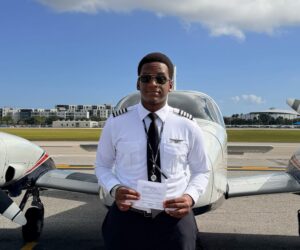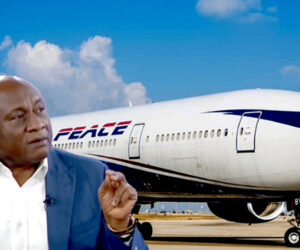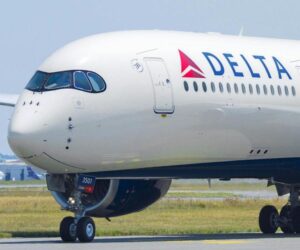1
The spate of unruly behaviours among air passengers in Nigeria is a call for concern as recent events show laxity in implementation of the International Civil Aviation Organisation (ICAO) Annex 17 – Aviation Security, which outlines the Standards and Recommended Practices (SARPs) for safeguarding international civil aviation against acts of unlawful interference in Nigeria. OLUSEGUN KOIKI writes.
Unruly passenger behaviour is rising in the global aviation industry, including in Nigeria.
The sector globally, especially the airline sub-sector, is facing an unjustified resistance and protest from angry passengers, who can go at any length to cause disruption to flights and destruction to airport and airline assets, thereby comprising the safety and well-being of other passengers and crew.
This behaviour can manifest in various ways, including physical violence, verbal threats, refusal to comply with safety protocols, tampering with aircraft systems, or harassment of crew and fellow passengers.
The International Air Transport Association (IATA) in its recent statistics said that unruly behaviour had been on the increase in recent years.
According to IATA, no fewer than 10,000 cases of unruly behaviour is recorded annually in recent years.
This trend has been exacerbated by the post-pandemic travel surge, where heightened anxiety, altered social norms, and pent-up frustrations contribute to a volatile environment.
There are several external factors for display of unruly behaviours by air travellers.
Also, some passengers who feel disrespected, ignored, or mishandled by airline staff may become combative. For instance, issues like luggage loss, seating disputes, mobile phone handling, or miscommunication often act as flashpoints for such acts.
Unruly Behaviours Putting Aviation on the edge
The Nigerian aviation industry has been on the edge in the last few weeks, courtesy of various unruly behaviours exhibited by air travellers.
Prior to that time, about a few months ago, there was an accusation and counter-accusation between Sen. Adams Oshiomhole, the Senator representing the Edo North senatorial district and Air Peace over a 6:30am flight services out of the Murtala Muhammed Airport (MMA), Lagos to the Nnamdi Azikiwe International Airport (NAIA), Abuja.
Air Peace had accused the senator of a disruptive act after he allegedly arrived late for boarding, but the senator debunked the disruption claim by the airline, saying that he “merely acted in defence of fellow passengers who were unfairly denied boarding despite complying with the airline’s check-in policies.”
On August 5, Mr. Wasiu Ayinde, known as King Wasiu Ayinde Marshal 1 (KWAM 1), among Fuji music fans, had caused chaos at the airside of the Nnamdi Azikiwe International Airport (NAIA), Abuja when he attempted to stop a ValueJet Airline aircraft from departing the bay.
The airline and the Federal Airports Authority of Nigeria (FAAN) had accused the musician of attempting to board ValueJet aircraft with excessive alcohol.
FAAN had said that in accordance with international aviation security standards, specifically, Nigeria’s National Civil Aviation Security Programme (NCASP) and the International Civil Aviation Organisation (ICAO) Annex 17, liquids exceeding 100ml are not permitted through security screening unless medically necessary and properly declared.
But, KWAM 1 debunked the allegation, claiming that what he had in its flask was water and not alcohol as alleged by the airline and FAAN.
This incident also led to the breach of aviation safety protocols by the two pilots of the airline who departed from the bay without strict adherence to aviation safety protocols and almost hit KWAM 1, who quickly ducked to avoid the moving aircraft.
The following day, the Nigeria Civil Aviation Authority (NCAA), slammed KWAM 1 and the cockpit crew with various penalties, including six months no-fly ban locally and internationally placed on the musician.
Five days after the KWAM 1 incident, Sunday, August 10, 2025 to be precise, viral videos emerged again, showing another passenger aboard Ibom Air from Uyo to Lagos airports, Ms. Comfort Emmanson manhandling the airline’s cabin crewmembers.
Ibom Air, alleged the confrontation began in Uyo before take-off, when Emmanson refused to switch off her mobile phone as required by aviation safety rules.
The carrier claimed she later assaulted a purser upon arrival in Lagos, endangering passengers, crew, and the aircraft.
The unruly conduct of Ms. Emmasson, led to her being charged to court the same day and remanded at the Kirikiri correctional facility in Lagos for assaulting airline officials.
Minister’s Olive Branch
However, while both incidents were still gaining public attention and debate, Mr. Festus Keyamo, the Minister of Aviation and Aerospace Development, put an abrupt stop to them by resolving the issues and giving numerous concessions after “consultations with critical stakeholders.”
Part of the concessions was the reduction of KWAM 1’s suspension to just one month, his appointment as an ambassador for proper airport security protocol by FAAN, withdrawal of the court charges instituted against him by the ministry, while also conferring with Ibom Air to withdraw all criminal charges levelled against Emmanson, among others, which the airline consented to in conjunction with the Airline Operators of Nigeria (AON).
He also recommended training and retraining for all personnel, including cabin and cockpit crews of the two airlines and others.
He added: “These above decisions were taken by the government and the airline operators purely on compassionate grounds as the government will never pander to base sentiments, politically-motivated views or warped legal opinions when clear encroachment of our laws are involved.
“We are also sending a clear message that we take safety and security in the aviation sector very seriously and we have decided to draw a line after these clemencies.”
However, the decision to terminate the two cases at infant stage especially that of Emmanson, did not go down well with some aviation industry players, who said the lack of prosecution for the delinquent behaviour exhibited by the lady may further encourage others to perpetuate the same conduct against flight crew in the future and further endangering the lives of other passengers and equipment.
Experts Reviews
Mr. Amos Akpan, the Managing Director, Flight and Logistics Solutions Limited, said that recent events portrayed a negative image for the nation’s aviation industry.
Akpan, emphasised that the events also revealed gaps in the Nigerian aviation security protocols, while it also showed that Aviation Security (AVSEC) and other security agencies lacked the ability to handle unruly and security risk guests with the present facilities.
Akpan, explained that the airport environment is presumed monitored and controlled with every activity within the environment assumed traceable.
He expressed that steps to deal with each level of security breaches are published and should be followed at implementation when the need occurs, stressing that penalties and sanctions are published both for individuals and organisations.
He added: “Because we ignore these set rules, we take a guest from the aircraft and from the tarmac to social media for trials instead of taking him or her to the psychiatrist for diagnosis on mental status.
“Every department and organisation should henceforth follow their laid out procedures as approved; and inculcate as amended versions into their processes. The world is watching us. The evil planners are watching for loopholes. Let us be guided.”
Also, Mr. Chuwkudi Amokwu, aviation analyst, declared that unruly passenger incidents have far-reaching consequences for airlines, affecting safety, operations and reputation.
According to him, physical altercations or threats could directly jeopardise the safety of passengers and crew, noting that in extreme cases, such incidents could also escalate to attempts to breach cockpit security or interfere with flight controls.
Amokwu, pointed out that the Emmanson security and safety breaches were treated with kid gloves by the government.
Though, he said the issue could have been handled differently, but commended the crew of Ibom Air for displaying utmost professionalism in the face of provocation.
Amokwu, also warned that compensations or rewards to unruly behaviours may further escalate the menace, warning the government to resist such gestures in the future.
He, however, pointed out that such behaviour was not limited to the Nigerian aviation industry alone, describing it as a global menace, which needed education and enlightenment to address.
He said: “Then, the government came out with compensations and rewards for the alleged unruly passengers. Once the government announced a reward system for the suspects, I knew there may be a repeat of such an attitude by some of the passengers. As it is, there is no punishment to deter others from engaging in such acts in the future.
“If I were the minister, I would have allowed the law to take its due course. You don’t terminate a case that is yet to begin by stopping it from starting.
“I hope we are not creating our own aviation industry or lowering the bar from the recommendations and practices of ICAO? Nigeria needs to be up and doing to be recognised as a state that complies with standard practices.”
Also, Mr. Olumide Ohunayo, Director, Zenith Research, in an interview with our correspondent, told the Nigeria Civil Aviation Authority (NCAA) to ensure effective implementation of Part 19 on Consumer Protection, which deals with the Passenger Rights and Responsibilities to tackle unruly or disruptive behaviours among the travelling public.
Ohunayo, insisted that it was necessary for the sector to have effective legislation to address the rising case of unruly passengers.
He, however, emphasised that the sector in the country was not short of consumer-airline protection laws, but said implementation of these laws had not been effective.
Ohunayo, lamented that some of the unruly passengers had done damages to the airlines’ assets and staff in the past without appropriate sanction by the responsible authority.
In a bid to address the challenge, Ohunayo emphasised that some countries, including the United States had taken decisive action against such behaviour, stressing that the U.S for instance had a zero-tolerance approach to tackle the issue.
He said: “It is important that the government and airlines have the necessary legal authority to prosecute unruly passengers. Enforcement measures that reflect the severity of the incident should be activated.
“For this to happen, command gaps must be eradicated and effective coordination between airlines and responsible agencies.
“If a crew member, staff or other passenger is threatened or assaulted, there should be action taken against the offender by the respective government agencies.”








